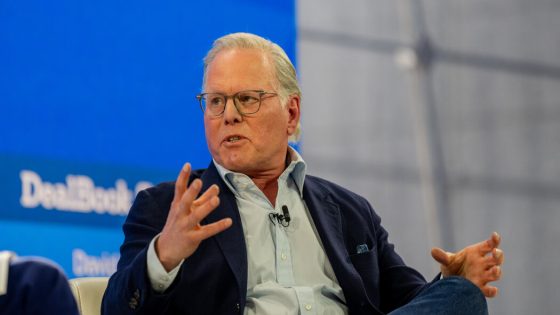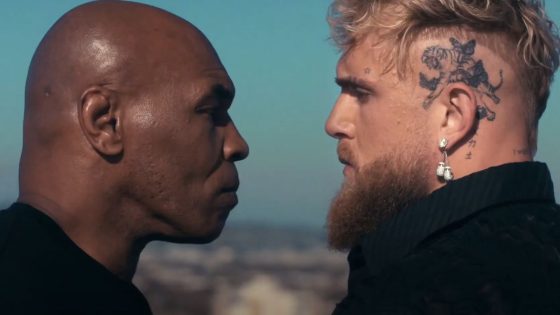David Zaslav, the chief executive of Warner Bros. Discovery, received $49.7 million in compensation last year, a 26 percent increase from the previous year, according to a proxy statement filed on Friday with the Securities and Exchange Commission.
It is common for chief executives in media to receive lavish pay packages. Mr. Zaslav’s compensation for 2023 is notable, however, because Warner Bros. Discovery is not exactly a portrait of health. Losses totaled $3 billion in 2023, which was actually an improvement from $7 billion in losses the year before. Revenue fell 4 percent, largely because of the company’s atrophying cable television business, which includes CNN.
In addition, Warner Bros. Discovery shareholders sent a clear message about Mr. Zaslav’s pay at the company’s most recent annual meeting: It’s too high.
In a nonbinding “say on pay” vote, only 50.8 percent of shareholders approved of the $39.3 million he was paid in 2022. Approval by less than 70 percent is considered “low support” by ISS, a leading corporate governance firm.
For 2023, the Warner Bros. Discovery board adjusted compensation formulas for its top executives. The adjustment involved certain bonuses — tying them more to the generation of free cash flow, which is helpful in paying down debt, and less to the company’s stock price. (Shares have lately traded at about $8, down from $24 two years ago.)
In terms of free cash flow, Warner Bros. Discovery had a spectacular 2023. Free cash flow totaled $6.2 billion, an 86 percent increase from the year before, vastly more than Wall Street had expected. That was partly a result of improved financials at the company’s streaming division, which became profitable. The union strikes that shut down Hollywood for six months also contributed, saving on production costs.
The money allowed Warner Bros. Discovery to trim its total debt by 11 percent, to $44.2 billion, in 2023.
Mr. Zaslav’s compensation for 2023 included a $3 million base salary and long-term stock awards of $23 million, according to the proxy. He also received $22 million in cash, a payment guaranteed by a 2021 employment contract and related to his role in merging Discovery and WarnerMedia. (In 2021, Mr. Zaslav, then running Discovery, received compensation valued at $246.6 million.) An additional $1.6 million was related to security and personal use of the corporate jet.
“We were impacted by the changing landscape of advertising spending and continued weakness in the advertising market overall; declines in linear television viewing; increased competition from other traditional media companies and the enhanced presence of large technology companies in the media space; lingering effects of the COVID-19 pandemic on movie-theater attendance,” Warner Bros. Discovery said in the proxy.
Despite those challenges, Mr. Zaslav “provided exceptional leadership and delivered on several financial, operational and strategic priorities,” the company said. (It also gave hefty raises to its chief financial officer, president of streaming, chief revenue and strategy officer, and international president.)
To compare, Robert A. Iger, Disney’s chief executive, received a pay package worth $31.6 million in 2023, a 31 percent decline from 2021. (In the interim, he retired and unretired.) Ted Sarandos, Netflix’s co-chief executive, received $49.8 million, on a par with a year earlier. Bob Bakish, chief executive of the troubled Paramount Global, was paid $31.3 million in 2023, down 2 percent.
Pay packages like these — when entertainment companies have been walloped by the shift to streaming from traditional television — played a major role in the union strikes. “They plead poverty, that they’re losing money left and right when giving hundreds of millions of dollars to their C.E.O.s,” Fran Drescher, the president of the actors’ union, said at July rally. “It is disgusting.”
Most of the big media companies slashed costs in 2023, laying off thousands of people and announcing plans to make fewer movies and television shows. But Mr. Zaslav and his lieutenants have been particularly aggressive, even shelving nearly finished content like “Batgirl” and “Coyote vs. Acme.”
“We said no sacred cows,” Mr. Zaslav said at The New York Times’s DealBook Summit in November.
Source Agencies




